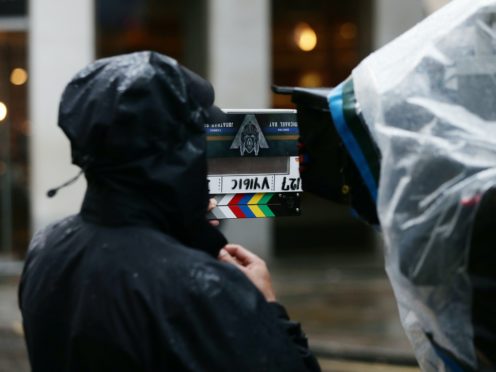One of the authors of a letter to the UK film and TV industry calling for the tackling of systemic racism has said there must be “no more lip service” and that she hopes its white signatories are held accountable.
Producer Nisha Parti, who is behind film Honour and BBC drama The Boy With The Topknot, wrote the letter with a group including presenter Anita Rani and actress Meera Syal, which has since been signed by more than 4,000 producers, writers, directors and actors.
It says that while messages of support of Black Lives Matter are “a first step”, the industry must do more “after decades of enabling racism in your ranks”.

It has been signed by stars such as Michaela Coel, Sophie Okonedo and Chiwetel Ejiofor, as well as Colin Firth, Sandi Toksvig and Line Of Duty creator Jed Mercurio.
Parti told the PA news agency: “When we initially sent it out to people we sent it out to people of colour, and it was really us sort of addressing the wider industry with our woes.
“And of course what then started to happen was that a lot of people who are allies and who we work with, that are white, started to sign it and say ‘This is brilliant, we support you and we would like to put our name to this as well.’

“And of course that has created some controversy because some people have said ‘Well hang on, if white people are signing it then who are you sending it to?’.
“And I think we felt after discussing it as a group that we didn’t want to be exclusive but also that we are all working together and people are saying ‘We are reading this and we understand and want to help’ and I think it’s really powerful that it’s been signed by everyone.
“Those names are on the list and we can then hold them to account and I sort of want to say to everyone who is reading about it that if you see a name on that list that you feel hasn’t treated you well, or actually has only made non-diverse films, you can ask them why they signed it.
“And I think almost everyone needs to take responsibility for looking at who signed it and saying ‘Actually I didn’t have a very good experience with that person’ but I think they are all well-intentioned and I sort of feel optimistic about the fact that people have really embraced it.”
She continued: “What’s been interesting is I’ve been approached already by quite a lot of important producers and people in the industry who are white saying ‘We need your help, we want to change and actually we don’t really know what to do and can you come an talk to us next week?’ and I just think that is all great.
“And I think ultimately there are lots of people out there that historically might have had issues but really are thinking ‘We want to change and how do we do it?’ and let’s have a really big conversation and help. I kind of want to help people rather than be antagonistic about it.”
However, Parti said it is important that these pledges be followed up by action.
She said: “I feel like for years you do hear people setting up initiatives or saying ‘We have got one diverse project so actually we are fine.’
“And now recently with the whole BLM thing, so many people are Instagramming and so many companies are Instagramming and you look at their history and think ‘Hmmmm yes but actually when are you going to put your money where your mouth is?’
“This was a call for that, no more lip service. If you really want to help you’ve got to do something, you can’t just say you want to help. It doesn’t mean anything.”
